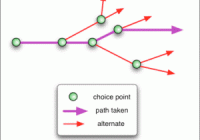Open Futurism, Supervaluationism, and Indeterminacy – A Critique of Barnes and Cameron
In my previous post on Ch. 2 of Patrick Todd’s book The Open Future (Oxford 2021), I criticized Todd for confusing supervaluationism with the view defended by Elizabeth Barnes and Ross Cameron in two influential papers. In this post I want to look more closely at the view of Barnes and Cameron (hereafter B&C). For ease of… Read More »

